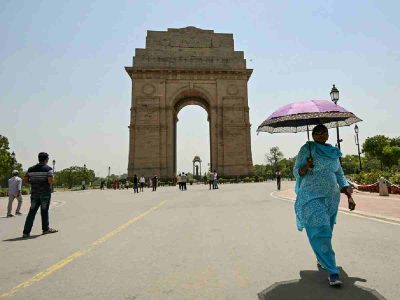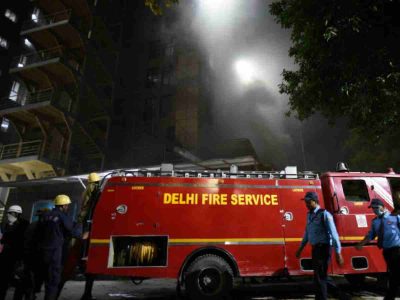Delhi: With temperatures soaring across Delhi-NCR, doctors are warning that children are especially vulnerable to heat-related illnesses—and simple precautions at home could prevent serious health emergencies.
“Children are not able to regulate body temperature as effectively as adults,” said Dr Sumit Chakravarty, Associate Director of Paediatrics & Neonatology and Head of NICU at Asian Hospital. “This makes them more prone to heat exhaustion, dehydration, and even heatstroke. It’s crucial for parents to take preventive steps during extreme heat conditions.”
One of the most important measures, he stressed, is regular hydration. “Don’t wait for your child to say they’re thirsty. Offer water frequently, especially after outdoor play. Carry a water bottle—ideally with lemon water. Avoid juice and cold drinks, as they can worsen dehydration.”
Doctors urge caution during outdoor activity
Hospitals across the city are reporting a growing number of children presenting symptoms of heat stress—vomiting, dizziness, irritability, and in some cases, dangerously high fevers. These cases are largely preventable, doctors say.
Dr Rajiv Chhabra, Chief of Paediatrics at Artemis Hospitals Delhi, advised parents to avoid letting children play outdoors between 10 AM and 4 PM, when temperatures peak. “If stepping outside is unavoidable, use cooling towels or portable fans, and take frequent breaks in the shade. Children should wear light-coloured, breathable cotton clothing, and must not go out without a hat or sunscreen.”
He also emphasised a point echoed by every paediatrician interviewed: “Never leave a child in a parked car—not even for a minute. The temperature inside can rise to fatal levels within moments.”
Recognising early signs of heat-related illness
Despite precautions, early signs of heat illness may still appear. “Parents should look for symptoms like excessive sweating, dizziness, irritability, or nausea,” said Dr Chakravarty. “If a child develops rapid breathing, becomes unusually drowsy, or runs a high fever, they must be brought indoors, cooled down with wet cloths or water, and taken to a doctor without delay.”
Dr Sameer Punia, Senior Consultant and Paediatrics Intensivist at Aakash Healthcare, said dehydration is a growing concern. “Children are more sensitive to fluid loss. They should be encouraged to consume fluids throughout the day—coconut water, lemon water, glucose water, lassi, and buttermilk are all excellent options,” he said. “Avoid giving them food from outside, which can further compromise their health.”
Staying safe indoors
Even indoors, extreme heat can take a toll on children’s health. Dr Charu Goel Sachdeva, Director and Unit Head of Internal Medicine at Max Super Speciality Hospital, Dwarka, told Patriot that high temperatures can affect blood pressure, breathing, and energy levels—even in homes with cooling systems.
“Use blackout curtains and fans, and keep children in well-ventilated, shaded rooms,” she advised. “Avoid abrupt temperature shifts. If using an air conditioner or cooler, don’t step outside immediately. Let the body adjust gradually.”
Also Read: Delhi start-up develops world’s first dual-target CAR-T cancer therapy
Dr Sachdeva added that even healthy children can develop heatstroke, which is a medical emergency. “If a child becomes disoriented, faints, or if their body temperature spikes, seek immediate medical help.”
Simple summer routines, big protection
Doctors recommend going back to the basics—hydrating foods, breathable clothing, and minimising sun exposure during the hottest hours of the day.
“Include fruits like watermelon, muskmelon, and cucumber in their diet. Avoid heavy or spicy meals,” said Dr Chakravarty. “Children lose a lot of salt through sweat. Including ORS or homemade electrolyte drinks can help maintain balance.”
Dr Punia added that hygiene is equally important. “Cool baths are essential during this weather. If your child sweats excessively, ensure they use their own towel and do not share it with others to prevent skin infections.”
Prevention is critical
With the heatwave expected to continue into June, doctors are urging parents to stay proactive.
“Taking precautions during a heatwave is not difficult, but it is absolutely essential,” said Dr Sachdeva. “A few simple habits can protect children from serious complications—and potentially save lives.”





